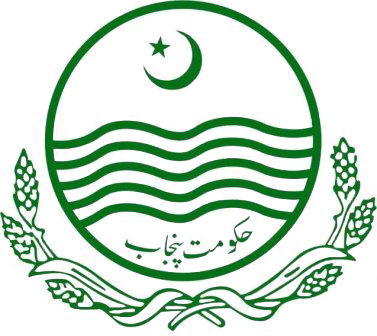Chief Minister Maryam Nawaz has announced a landmark welfare initiative under which 1.5 million families across Punjab will receive new Ration Cards starting May 2025. This program aims to reduce food insecurity, support vulnerable households, and provide a permanent safety net against rising inflation. The announcement has brought a strong wave of hope to struggling families who depend on government support to meet basic kitchen needs.

The introduction of these new Ration Cards marks a shift toward a more structured and transparent subsidy system. Instead of temporary or seasonal support, Punjab’s government is now creating a sustainable welfare model that ensures families receive monthly assistance directly and consistently. This initiative aligns with the government’s broader policy of poverty reduction, digital transparency, and social protection for the most vulnerable groups.
You can also read: BISP 8171 November Double Payment 27000
Many families who benefited earlier from the Nigehban Ramzan Package will automatically be included in this new scheme, enabling them to receive their cards without going through a new application process. This streamlined approach will help avoid delays and ensure targeted families begin receiving support as early as possible.
Government’s Vision Behind the New Ration Card Program
The new Ration Card initiative is designed to give long-term financial security to low-income households, ensuring they can buy essential items such as flour, sugar, ghee, rice, and pulses at subsidized prices. Maryam Nawaz emphasized that the program goes beyond distributing food aid it aims to restore dignity, reduce hunger, and ensure that no household is forced to compromise on nutritional needs due to financial stress.
With inflation increasing household expenses, the government’s primary objective is to reduce the monthly financial burden on families who struggle to afford basic groceries. By providing a monthly subsidy of Rs. 3,000, the program helps stabilize kitchen spending and supports families in planning their budgets more effectively. This initiative also reduces dependence on seasonal aid programs by offering year-round assistance.
Digitalization plays a significant role in this project. The Ration Cards will be powered by a smart-card system linked to Punjab’s Socio-Economic Registry (PSER), ensuring transparency and preventing misuse. Every transaction will be securely recorded, giving families easy access to updates and eliminating the possibility of favoritism or uneven distribution.
Who Will Receive the 1.5 Million Ration Cards?
The Punjab government has selected beneficiaries based on updated socio-economic data, ensuring that the cards reach only the most deserving families. These households are typically those with low incomes, unstable employment, and no existing welfare coverage from major federal programs like BISP. This selection approach helps prevent duplication and ensures equal access to support for families not yet covered by other programs.
A large portion of families who recently received Rs. 10,000 through the Nigehban Ramzan Program will automatically qualify for these Ration Cards. Their data has already been verified, meaning they do not need to submit any new documents or visit government centers. They simply have to wait for a confirmation call from their local Union Council once the card is ready for collection.
The distribution process is being implemented in phases. Some districts have already begun issuing cards, and the remaining districts will follow soon. The government plans to complete the initial rollout across the entire province within the first few months of the program’s launch.
Key Groups Eligible for the New Ration Cards
- Low-income households earning below Rs. 50,000 per month
- Families previously included in the Nigehban survey
- People registered in the Punjab Social & Economic Registry (PSER)
- Households not receiving BISP or other federal benefits
- Residents with valid Punjab domicile and CNIC
Who Is Not Eligible Under This Program?
The government has clearly stated that BISP beneficiaries will not be included in the Ration Card program. Since they are already receiving federal support, adding them to this provincial scheme would create duplication and reduce the chances for other vulnerable families. By excluding BISP-registered households, the government ensures fairness and efficient distribution of limited resources.
You can also read: Punjab Free E-Taxi Scheme 2025
In addition, individuals who do not meet the income criteria or who fail to provide accurate household information may also be excluded. This includes families with significantly higher income levels, incomplete PSER registrations, or those who previously received benefits fraudulently. Verification teams are being trained to ensure that only legitimate applicants are approved.
People living outside Punjab or holding CNICs registered in other provinces will also not qualify, as the scheme is specifically designed for Punjab residents. Applicants must ensure their CNIC, mobile number, and PSER information match their current residence to avoid rejection.
Groups Not Eligible for the Ration Card
- BISP registered beneficiaries
- Families earning above Rs. 50,000 monthly
- People living outside Punjab
- Individuals with unverified CNIC or mobile number
- Households flagged for inaccurate information during verification
Complete Benefits of the CM Punjab Ration Card
Maryam Nawaz’s Ration Card initiative is one of the most comprehensive food-security programs launched in Punjab. The main benefit is the guaranteed monthly subsidy of Rs. 3,000 that families can use at utility stores or registered grocery shops. This financial support significantly reduces the burden of buying essential kitchen items each month.
The program also provides subsidized rates on key groceries, ensuring that even if market prices fluctuate, families with Ration Cards continue to access food items at stable, affordable prices. Digital smart-card technology ensures transparent transactions and prevents funds from being misused or diverted. This new system makes the process faster, more secure, and easier for both beneficiaries and shopkeepers.
Another major benefit is convenience. Families will no longer need to stand in long queues at distribution centers. Instead, they can purchase items whenever they need them, just like a debit-card system. This approach gives families more dignity, flexibility, and control over their monthly budget.
Major Benefits of the Ration Card Program
- Monthly Rs. 3,000 financial assistance
- Subsidized flour, sugar, rice, ghee, pulses
- Smart-card enabled secure transactions
- No long queues or delays in receiving aid
- Wide acceptance at utility stores and registered grocery shops
- Priority support for 1.5 million families across Punjab
Documents Required to Apply for the Ration Card
To ensure smooth verification and avoid misuse, applicants must provide original and updated documents during the registration process. These documents help the government confirm identity, household income, and eligibility for the Ration Card. Families with older or incorrect data in the system may face delays, so updating information beforehand is essential.
You can also read: BISP Wallet SIM 8171 Registration (Step-by-Step) Guide
Most applicants who were part of the Nigehban survey will not need to submit fresh documents. However, new applicants—especially those applying through the PSER platformmust provide accurate details to ensure their application is accepted. Proper documentation speeds up approval and reduces the risk of rejection.
Below is a complete list of required documents for new applicants.
Required Documents
- Original CNIC of the applicant
- Registered mobile number
- Punjab domicile proof or residential document
- Recent passport-size photographs
- Proof of income below Rs. 50,000
- Latest utility bill for address verification
- Complete household details for PSER survey
Quick Overview of Key Program Highlights
| Feature | Details |
|---|---|
| Total Beneficiaries | 1.5 Million Families |
| Monthly Subsidy | Rs. 3,000 |
| Eligibility | Non-BISP low-income households |
| Distribution Method | Union Council Collection |
| Registration Platform | PSER Portal |
| Required Documents | CNIC, Mobile No., Income Proof |
Ration Items Available at Subsidized Rates
| Item | Subsidized Benefit |
|---|---|
| Flour | Reduced price per kg |
| Sugar | Subsidized cost |
| Ghee/Oil | Discounted rates |
| Rice | Lower market rate |
| Pulses | Affordable prices |
How to Apply Online for the Ration Card
While the official online application portal is expected to open on 29 April 2025, the Punjab Government has hinted that PSER will serve as the main platform for registrations. Applicants will need to create an account, enter their household data, and upload documents. Once verified, their name will appear in the eligible list.
The process has been designed to be user-friendly and secure, ensuring that families can submit their applications without unnecessary complications. Internet access, correct CNIC information, and a functioning mobile number are essential for online registration. Once the application is submitted, families can track their status through the PSER dashboard.
New applicants should ensure that all details match their official documents to avoid delays. Incorrect or mismatched information is one of the leading causes of application rejections in previous welfare programs, making accuracy extremely important.
Steps for Applying Online
- Visit the PSER portal when launched
- Create your account using CNIC and mobile number
- Fill in family details accurately
- Upload required documents
- Submit the application and track the status
Offline Application Method (If Allowed)
If offline registration is permitted, families can apply at their nearest Union Council or Khidmat Markaz. Applicants will need to visit with their original CNIC, complete a form, and provide basic household information. Staff members will assist in entering data into the PSER system, ensuring seamless processing.
This method is especially useful for individuals without internet access or digital literacy. Offline applications also allow frontline staff to verify documents physically, reducing chances of fraud or misreporting. Once approved, families will receive a confirmation SMS from the Union Council.
Applicants should avoid submitting copies of documents without presenting the originals. Physical verification is mandatory for successful registration. Failure to provide the correct documents may lead to rejection or delays in approval.
Offline Steps
- Visit nearest Union Council or Khidmat Markaz
- Provide original CNIC and mobile number
- Fill out the Ration Card form
- Verify and submit the application
Checking Ration Card Status
Applicants can check the status of their Ration Card either through the official PSER portal or by sending an SMS to 8123. The SMS method is quick and especially useful for individuals without internet access. Applicants must enter their CNIC without dashes and send it to the designated number.
Once the application is processed, the portal or SMS reply will confirm whether the card has been approved, rejected, or is still under review. Approved applicants will eventually receive an official call from their Union Council once the card is ready for collection.
Beneficiaries are strongly advised to avoid responding to unofficial calls or messages. Only messages from government-verified numbers should be trusted to avoid falling victim to scams, especially since welfare programs are often targeted by fraudsters.
Ways to Check Status
- Log in to the official PSER portal
- Send CNIC to 8123 via SMS
- Contact local Union Council for confirmation
You can also read: BISP Installment Tracking Portal Check Registration
Conclusion
The announcement of 1.5 million new Ration Cards by Maryam Nawaz marks a major milestone in Punjab’s welfare reforms. With clear eligibility rules, digital smart-card technology, and transparent distribution through Union Councils, the government aims to ensure that only deserving families receive essential support. This program not only provides financial relief but also strengthens food security, reduces poverty, and promotes dignity for low-income households across Punjab.
As the rollout continues district by district, the CM Punjab Ration Card initiative promises a more stable and equitable future for millions of families who rely on government assistance to meet their basic needs.

